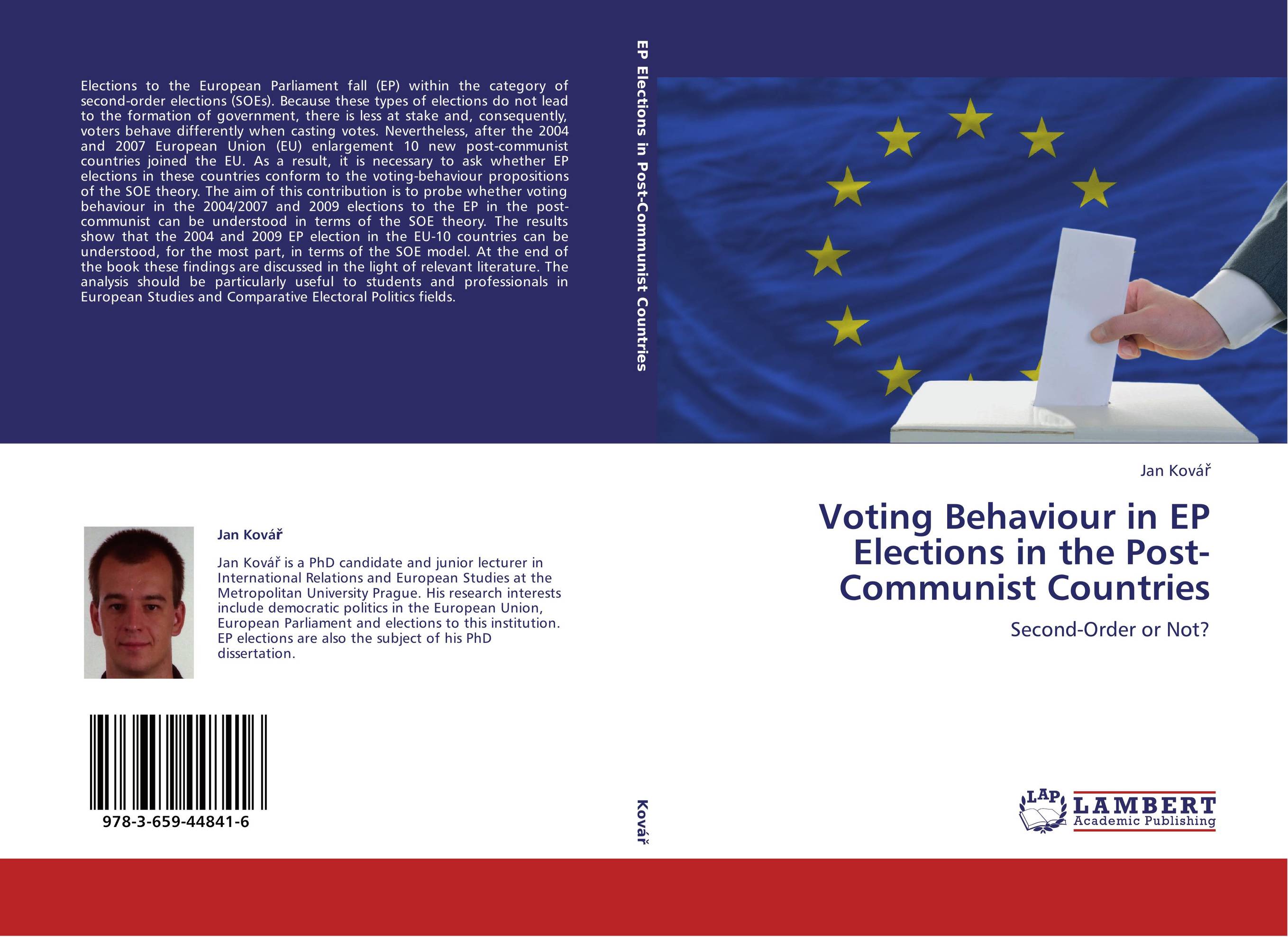| Поиск по каталогу |
|
(строгое соответствие)
|
- Профессиональная
- Научно-популярная
- Художественная
- Публицистика
- Детская
- Искусство
- Хобби, семья, дом
- Спорт
- Путеводители
- Блокноты, тетради, открытки
Voting Behaviour in EP Elections in the Post-Communist Countries. Second-Order or Not?

В наличии
| Местонахождение: Алматы | Состояние экземпляра: новый |

Бумажная
версия
версия
Автор: Jan Kov??
ISBN: 9783659448416
Год издания: 2013
Формат книги: 60×90/16 (145×215 мм)
Количество страниц: 104
Издательство: LAP LAMBERT Academic Publishing
Цена: 32031 тг
Положить в корзину
| Способы доставки в город Алматы * комплектация (срок до отгрузки) не более 2 рабочих дней |
| Самовывоз из города Алматы (пункты самовывоза партнёра CDEK) |
| Курьерская доставка CDEK из города Москва |
| Доставка Почтой России из города Москва |
Аннотация: Elections to the European Parliament fall (EP) within the category of second-order elections (SOEs). Because these types of elections do not lead to the formation of government, there is less at stake and, consequently, voters behave differently when casting votes. Nevertheless, after the 2004 and 2007 European Union (EU) enlargement 10 new post-communist countries joined the EU. As a result, it is necessary to ask whether EP elections in these countries conform to the voting-behaviour propositions of the SOE theory. The aim of this contribution is to probe whether voting behaviour in the 2004/2007 and 2009 elections to the EP in the post-communist can be understood in terms of the SOE theory. The results show that the 2004 and 2009 EP election in the EU-10 countries can be understood, for the most part, in terms of the SOE model. At the end of the book these findings are discussed in the light of relevant literature. The analysis should be particularly useful to students and professionals in European Studies and Comparative Electoral Politics fields.
Ключевые слова: European Parliament, Voters, Voting Behaviour, European Parliament elections, second-order elections, first-order elections, aggregate electoral data



